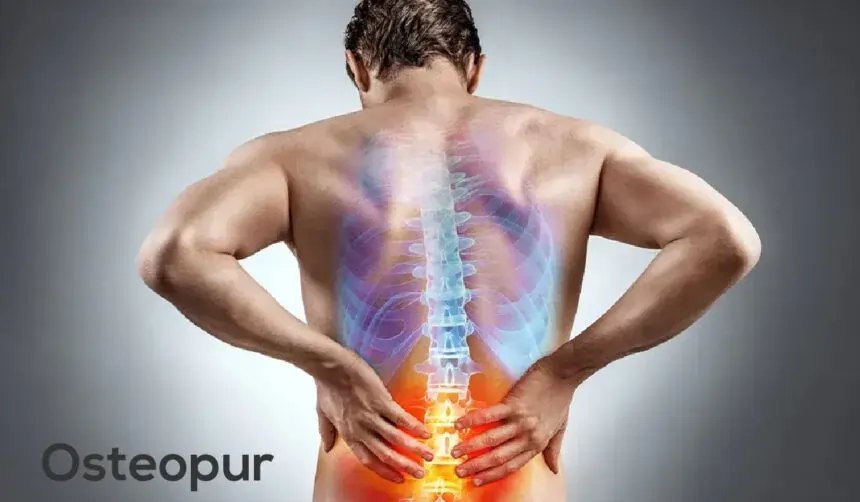In today’s world, healthcare accountability is more critical than ever. With the complexities of modern medicine, ensuring that healthcare providers adhere to the highest standards is paramount for patient safety. Medical malpractice tracking plays a pivotal role in this process.
This blog post explores how tracking practices can improve accountability in healthcare, provide transparency, and ultimately save lives. Whether you’re a healthcare professional or a patient, understanding these systems can empower you to make informed decisions about medical care.
Understanding Medical Malpractice
Medical malpractice occurs when a healthcare professional deviates from accepted standards, causing harm to a patient. It’s a complex issue that affects both individuals and the healthcare system as a whole. By clearly defining medical malpractice, we can create systems that hold professionals accountable and offer redress for affected patients.
Historically, malpractice issues were often swept under the rug, leaving victims without a voice. Today, however, advancements in technology and a greater emphasis on patient rights have shifted the focus. Tracking malpractice incidents provides a mechanism for identifying patterns and implementing improvements. It serves as a foundation for accountability, fostering trust between patients and healthcare providers.
Tracking not only identifies individual cases but also offers insights into systemic issues. By examining trends and commonalities in malpractice incidents, healthcare organizations can address underlying problems. This proactive approach not only prevents future incidents but also enhances the overall quality of care.
Implementing Tracking Systems
Implementing effective tracking systems requires a multi-faceted approach. It begins with comprehensive data collection, ensuring that every incident is documented accurately and consistently. This data serves as a basis for analysis and decision-making.
Modern tracking systems use technology to streamline data collection. Digital platforms allow for quick reporting and easy access to information. These systems must be user-friendly to encourage participation from all healthcare professionals. Training and education are crucial to ensure that everyone understands the importance of accurate reporting.
Data integrity is another vital aspect. Ensuring that data is secure, accurate, and accessible only to authorized individuals builds trust in the system. It ensures that the information collected is reliable and can be used effectively to drive improvements.
Benefits of Tracking Medical Malpractice
Tracking medical malpractice offers numerous benefits. First and foremost, it improves patient safety by identifying and addressing potential risks. By understanding where and why errors occur, healthcare providers can implement targeted interventions.
Tracking also enhances transparency and accountability. Patients have the right to know about the quality of care they receive. Transparent reporting builds confidence in the healthcare system and reassures patients that their well-being is prioritized.
Furthermore, tracking malpractice can lead to improved training and education for healthcare professionals. By analyzing data, organizations can identify areas where additional training is needed. This continuous learning approach fosters a culture of excellence and continual improvement.
Challenges in Medical Malpractice Tracking
Despite its benefits, tracking medical malpractice is not without challenges. One significant barrier is the fear of retribution among healthcare professionals. Creating an environment where individuals feel comfortable reporting incidents without fear of punishment is essential for effective tracking.
Another challenge is the sheer volume of data. Healthcare is a vast field, and tracking every incident requires robust systems capable of handling large amounts of information. These systems must be scalable and adaptable to evolving needs.
Finally, ensuring consistency across diverse healthcare settings can be difficult. Different organizations may have varying standards and practices. Developing standardized protocols and encouraging collaboration are key to overcoming this hurdle.
The Role of Technology
Technology plays a crucial role in modern malpractice tracking. From electronic health records to artificial intelligence, technological advancements offer new ways to collect and analyze data. These tools not only streamline processes but also provide deeper insights into trends and patterns.
For instance, the integration of the best mental health EMR systems allows for more comprehensive data collection across various specialties. These systems ensure that mental health professionals are held to the same standards of accountability as other healthcare providers.
Technology also enables real-time monitoring and alerts. Immediate access to information allows healthcare organizations to respond quickly to potential issues. This proactive approach minimizes harm and enhances patient safety.
Legal Implications and Considerations
Legal considerations are an integral part of medical malpractice tracking. Understanding the legal framework governing malpractice is essential for healthcare providers. It ensures compliance and protects both patients and professionals.
Transparency in legal processes fosters trust and accountability. Patients need assurance that their concerns are taken seriously and addressed promptly. Clear communication about legal rights and procedures empowers individuals to advocate for themselves.
Collaboration between legal experts and healthcare organizations can streamline processes. By working together, they can develop guidelines that balance accountability with fairness and compassion.
International Perspectives
Medical malpractice is a global issue, with different countries adopting various approaches to tracking and accountability. Learning from international perspectives can provide valuable insights for improving systems worldwide.
Countries with robust tracking systems often emphasize transparency and patient rights. These examples highlight the importance of a patient-centered approach, where individuals are empowered to voice their concerns and seek redress.
Global collaboration offers opportunities for sharing best practices and developing standardized protocols. By working together, countries can create more effective systems that prioritize patient safety and quality care.
Building a Culture of Accountability
Creating a culture of accountability requires commitment from all levels of the healthcare system. It involves fostering an environment where individuals feel valued and respected.
Leadership plays a vital role in setting the tone. By prioritizing transparency and open communication, leaders can inspire trust and collaboration. Encouraging reporting and feedback ensures that everyone feels heard and valued.
Empowering healthcare professionals to take ownership of their actions is another key aspect. Providing resources and support enables individuals to learn and grow from mistakes. This proactive approach reduces fear and builds confidence in the system.
Empowering Patients
Patients play a crucial role in improving accountability in healthcare. Empowering individuals to advocate for their rights leads to better outcomes and enhanced trust.
Education is key. Providing patients with information about their rights and the processes for reporting concerns ensures that they are informed and engaged.
Collaboration with patient advocacy groups can strengthen efforts to improve accountability. These organizations provide valuable insights and support for individuals navigating the healthcare system.
Finally, involving patients in decision-making processes ensures that their voices are heard. By actively listening to their concerns, healthcare organizations can build stronger relationships and deliver better care.
Conclusion
Medical malpractice tracking is a vital component of modern healthcare. It improves accountability, enhances patient safety, and fosters trust in the system. By addressing challenges and leveraging technology, healthcare organizations can create robust tracking systems that benefit everyone. Empowering patients and fostering a culture of accountability ensures that healthcare providers deliver the highest quality of care. Together, we can work towards a safer, more transparent healthcare system for all.







2 thoughts on “Holding Healthcare Accountable The Role of Medical Malpractice Tracking”